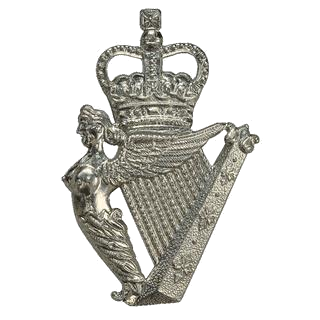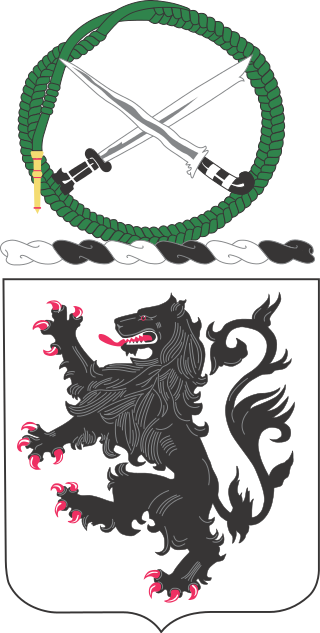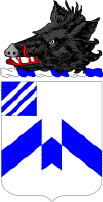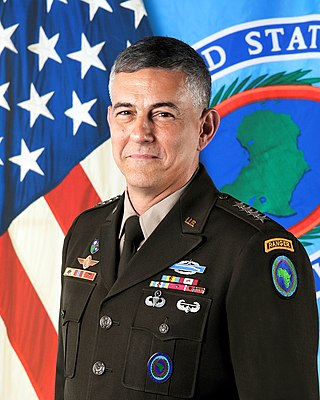
Operation Anaconda or the Battle of Shah-i-Kot was a military operation that took place in early March 2002 as part of the War in Afghanistan. CIA paramilitary officers, working with their allies, attempted to destroy al-Qaeda and Taliban forces. The operation took place in the Shah-i-Kot Valley and Arma Mountains southeast of Zormat. This operation was the first large-scale battle in the post-2001 War in Afghanistan since the Battle of Tora Bora in December 2001. This was the first operation in the Afghanistan theater to involve a large number of U.S. forces participating in direct combat activities.

The United States Army Rangers are elite U.S. Army personnel who have served in any unit which has held the official designation of "Ranger". The term is commonly used to include graduates of the Ranger School, even if they have never served in a "Ranger" unit; the vast majority of Ranger school graduates never serve in Ranger units and are considered "Ranger qualified".

The 75th Ranger Regiment, also known as the Army Rangers, is the premier light infantry and direct-action raid force of the United States Army Special Operations Command. The 75th Ranger Regiment is also part of Joint Special Operations Command via the Regimental Reconnaissance Company (RRC). The regiment is headquartered at Fort Moore, Georgia and is composed of a regimental headquarters company, a military intelligence battalion, a special troops battalion, and three Ranger battalions.

The Royal Irish Regiment is a light infantry regiment of the British Army. The regiment was founded in 1992 through the amalgamation of the Royal Irish Rangers and the Ulster Defence Regiment. Their oldest predecessor, the 27th Regiment of Foot, was first raised in June 1689 to fight in the Williamite War in Ireland. Other notable regiments in their lineage include the Royal Inniskilling Fusiliers, Royal Irish Rifles and the Royal Irish Fusiliers.

The 1st Ranger Battalion, currently based at Hunter Army Airfield in Savannah, Georgia, United States, is the first of three ranger battalions belonging to the United States Army's 75th Ranger Regiment.

The 22nd Infantry Regiment is a parent regiment of the United States Army. Currently the 2nd Battalion is active, with the regimental colors residing at Fort Drum, New York. The 1st, 3rd, and 4th Battalions have been inactivated.

The 9th Infantry Regiment ("Manchu") is a parent infantry regiment of the United States Army.

The 2nd Ranger Battalion, currently based at Joint Base Lewis–McChord south of Seattle, Washington, United States, is the second of three ranger battalions belonging to the United States Army's 75th Ranger Regiment.

The 3rd Ranger Battalion is the third of three Ranger Battalions belonging to the United States Army's 75th Ranger Regiment. It is currently based at Fort Moore, Georgia.

The Battle of Takur Ghar was a short but intense military engagement between United States special operations forces and al-Qaeda insurgents fought in March 2002, atop Takur Ghar mountain in Afghanistan. For the U.S. side, the battle proved the deadliest entanglement of Operation Anaconda, an effort early in the War in Afghanistan to rout al-Qaeda forces from the Shahi-Kot Valley and Arma Mountains. The battle saw three helicopter landings by the U.S. on the mountain top, each met with direct assault from al-Qaeda forces. Although Takur Ghar was eventually taken, seven U.S. service members were killed and 12 others were wounded. The battle is also known as the Battle of Roberts Ridge, after the first casualty of the battle, Navy SEAL Neil C. Roberts.

Since the establishment of the United States Army in 1775, three regiments have held the designation 28th Infantry Regiment. The first was a provisional unit that was constituted on 29 January 1813 and served during The War of 1812. The second was a reorganization and redesignation of 2nd Battalion, 19th Infantry Regiment on 1 October 1866 for the American Indian Wars. This incarnation of the 28th Infantry Regiment lasted until 15 March 1869, when it was consolidated back into the 19th Infantry Regiment. The third version of the 28th Infantry Regiment is the one that has the permanent designation and history, and is the one this article is about.

The 23rd Infantry Regiment is an infantry regiment in the United States Army. A unit with the same name was formed on 26 June 1812 and saw action in 14 battles during the War of 1812.

The 16th Infantry Regiment is a regiment in the United States Army and has traditionally been a part of the 1st Infantry Division.

The 30th Infantry Regiment is a United States Army infantry regiment. Two battalions are currently active under the United States Army Regimental System; there is no active regimental headquarters, with regimental designation being used only for historical tradition.

The 52nd Infantry Regiment is an infantry regiment of the United States Army.
Operation Bulldog Bite was a joint US and Afghan counter-insurgent mission in Kunar province, Afghanistan, against Taliban forces that was conducted in November 2010. The operation targeted Taliban havens in the villages of the Watapur District, which lies in the eastern region of the Pech River Valley. The region served as a transit area for Taliban and al Qaeda fighters entering from Pakistan, and is just five miles from the Korangal Valley, an area where US forces had previously shut down combat operations. In 2009, US commanders stated that the valley was strategically insignificant due to its remote location, but the Taliban and al Qaeda would later use the region to launch attacks into neighboring Afghan provinces.

A United States Air Force Tactical Air Control Party, commonly abbreviated TACP, is an individual or team of United States Air Force Special Warfare Airmen with AFSC 1Z3X1, who are aligned with conventional, Special Operation Forces, and Tier 1 combat maneuver units. They provide precision terminal attack control and terminal attack guidance of U.S. and coalition fixed- and rotary-wing close air support aircraft, artillery, and naval gunfire; establish and maintain command and control (C2) communications; and advise ground commanders on the best use of air power.
Company E, 52nd Infantry, (LRP) was a 120 man-sized long-range reconnaissance patrol unit attached to the 1st Cavalry Division (Airmobile) in Vietnam in 1967-69. Its origin begins on January 1, 1967, as "LRRP Detachment G2," 1st Cavalry Division (Airmobile). It was then redesignated "Headquarters & Headquarters Company LRRP Detachment" in April 1967, and redesignated "Company E, 52nd Infantry (LRP)" on December 20, 1967.

Stephen J. Townsend is a retired United States Army four-star general who served as Commander United States Africa Command from 26 July 2019 to 8 August 2022. He previously commanded the United States Army Training and Doctrine Command from March 2018 until June 2019 and XVIII Airborne Corps from May 2015 until January 2018.

Major General Gary Lynn Harrell was a United States Army general. He participated in numerous combat operations including Operation Just Cause in 1989, the Battle of Mogadishu in 1993, and the wars in Iraq and Afghanistan.

















